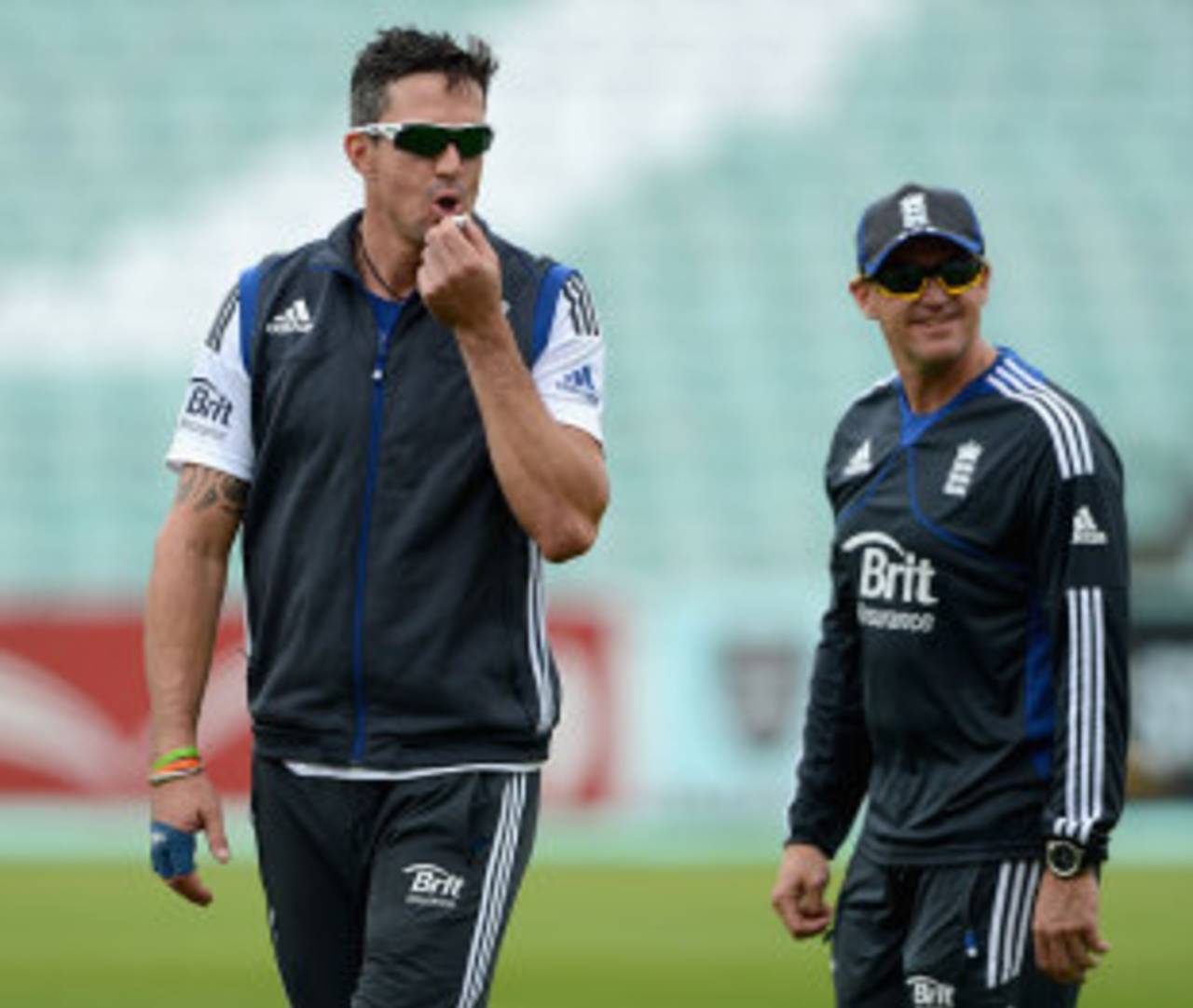PCA want new-look central contracts
England's elite players would have more of a say in the management of their workloads under proposals that are being drawn up by PCA
David Hopps at The Oval
Jul 19, 2012, 6:39 PM

Kevin Pietersen's recent stance has brought the issue of England players at the IPL to a head again • Getty Images
England's elite players would have more of a say in the management of their workloads under proposals that are being drawn up by the Professional Cricketers Association (PCA) ahead of the redrafting of central contracts next year.
If PCA proposals are accepted, England would shift slightly towards the sort of squad system that has become an accepted part of Premier League football, as the most senior and successful players such as Kevin Pietersen were given more licence to miss matches regarded as less important.
Angus Porter, chief executive of the PCA, facilitated unsuccessful negotiations last week between Pietersen and his representatives and Hugh Morris, the managing director of England cricket, which failed to end the stand-off which has led to Pietersen's premature retirement from all England limited-overs cricket.
Pietersen wanted rest from more one-day matches and also proposed missing at least one of England's May Tests to enable him to play a full IPL season.
Porter remains adamant that a more formalised rotation system is essential if England's top players are to maximise their time in the game. The current three-year agreement expires in autumn 2013 and the PCA and ECB are anxious to draw up a new deal before next summer's Ashes series.
"This is an issue we need to get to grips with and one that we will be discussing in the next central contracts negotiation," Porter said. "We all recognise that with a really hectic schedule managing workloads is important particularly for senior players who have played the longest and who play in all formats of the game.
"We need to find a way to provide a little bit more structure to what is already happening - to develop England cricket as a squad game where you not only try to win every game but you try to keep the talent fresh and at the top as long as possible.
"Some kind of process that introduces some form of flexibility for those players who have been at the top for a good length of time is desirable and consistent with that."
Porter also pointed to the example of the ATP circuit where leading tennis players are exempt from less prestigious tournaments and so delay their retirement as a result. Roger Federer, who defeated Andy Murray in the Wimbledon men's final earlier this month, may already have retired without the management of his playing demands.
Reducing the amount of international cricket is virtually impossible under the self-perpetuating system where the Future Tours Programme is fixed until 2020 and TV rights have been sold well ahead - Sky TV in the UK have a deal until 2017 with a further two-year option - on the basis of these deals. That only leaves the options of rest and rotation and a more orderly fixture list.
"The existing rules work well in some cases - Andrew Strauss is a good example of somebody who has benefited - and less well in others," Porter said. "It is not inconceivable that they might allow players to retire from Test cricket and play in both forms of one-day cricket."
What central contracts could not resolve, said Porter, was the ECB's uneasy relationship towards IPL.
"I do think the ECB and the other boards have to grasp that nettle, accept the IPL exists and identify a window for it so we do not always have to manage the consequences of an event which without constraint will continue to grow and move around the schedule. It shouldn't be the most difficult thing in the world.
"IPL is this dirty great big thing that is not fixed in time and space in the FTP and until or unless the Boards and the ICC get to grips with it, accept that it is here to stay and identify a window of a sensible length for it, it is impossible for any of us to plan."
That will become increasingly evident between 2014 and 2016. ICC one-day tournaments are scheduled in March and April for each of those years, pushing IPL even later into the year - infiltrating England's international season to an even greater extent.
"Like most traditionalists, I believe that Test cricket is the priority," Porter said, adding that it was an understandable ambition for England players to want to take part in "the most lucrative, high-profile and fantastic tournament. Being practical about it, IPL is different and is bigger. It is not impossible for us to do something about it if we can get the IPL placed in a window. "
Unless accommodation between English cricket and IPL is found, Pietersen, depicted by many as a self-obsessed maverick, might turn out to be the harbinger of a battle-scarred future as future England players are frustrated in their desire to play in cricket's most glamorous and rewarding T20 tournament.
Porter, closer to the negotiations than most, said: "I can't take issue with either side in the argument. Both have been very reasonable in their points of view and have tried to find some middle ground but you come back to the fact that at the moment there is an irreconcilable issue that IPL clashes with test cricket and the ECB regards Test cricket with absolute primacy. Much as they want to be reasonable they can't and won't budge."
David Hopps is the UK editor of ESPNcricinfo